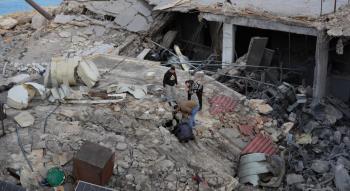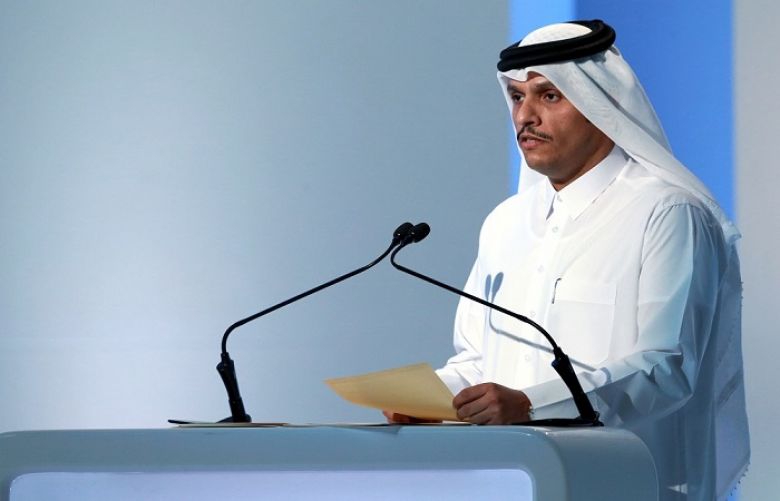Alwaght- Qatar says it is not ready to change its foreign policy to resolve a dispute with some fellow Persian Gulf states and will never compromise, the country’s foreign minister has said.
Speaking to reporters, Sheikh Mohammed bin Abdulrahman Al Thani emphatically stated that, "We are not ready to surrender, and will never be ready to surrender, the independence of our foreign policy." He further stressed that Qatar could live under embargo forever.
Sheikh Mohammed bin Abdulrahman Al Thani made the remarks in Doha on Thursday, just days after Saudi Arabia, Bahrain, Egypt, the UAE and several other countries cut relations with Qatar.
They accuse Qatar of supporting terrorism and close ties Palestinian Islamic Resistance Movement, Hamas, the Muslim Brotherhood and its neighbor, Iran. Qatar denies any wrongdoing.
Aljazeera cited top Qatari official as saying "He said Qatar has the backing of the international community and that they will manage to mitigate the consequences of this crisis."
Sheikh Mohammed bin Abdulrahman said that "measures had been taken by the Qatari government to ensure that the standards provided to the people will be maintained".
He said Qatar had not yet been presented with a list of demands by the countries that cut off ties with the country on Monday, but he insisted it be solved by peaceful means. "There cannot ever be a military solution to this problem," he said.
Saudi demands
The stern statement by Qatari foreign minister came after Saudi Arabia and its regional allies were reported to have issued Qatar with a list of 10 demands it must meet, after Riyadh and other nations in the region took the unexpected step of cutting off ties to the tiny Persian Gulf kingdom.
Sources say the demands include cutting off all links with Iran and expelling resident members of organizations the Saudis consider as “terrorist” namely, Palestinian Hamas and the Muslim Brotherhood. Qatar insists it does not fund terrorism or extremism, and says the presence of leading figures from Hamas or the Muslim Brotherhood in the capital, Doha, is in part an effort to achieve peace in the West Asia region. Qatar has also reiterated that it is not wise to be enemies with Iran, a country it shares the vast South Pars offshore gas field in the Persian Gulf.
Other points included curbs on the freedom of Qatar’s state-funded broadcaster Aljazeera, which some of its Persian Gulf neighbors have accused of slander and ‘fake news’, orders to stop “interfering” in foreign countries’ affairs. The demands on Aljazeera come as the network on Thursday reported that it had come under a large-scale cyber-attack which targeted its "all systems”.
"Al Jazeera Media Network under cyber-attack on all systems, websites & social media platforms," it said on social networking website Twitter on Thursday.
Elsewhere, Kuwait continued its efforts to mediate an end to the economic and diplomatic blockade of Qatar. Kuwait’s Sheikh Sabah Al Ahmad Al Sabah flew to Qatar on Wednesday night and was met at the airport by Qatar’s emir, Sheikh Tamim bin Hamad Al Thani. The Qatari foreign ministry said in a statement that the two held talks on how to “restore the normal relations” of the Persian Gulf.
Military on high alert
Sheikh Mohammed bin Abdulrahman further clarified that the contingent of Turkish troops set to deploy to Qatar was for the sake of the entire region's security.
Meanwhile, observers have reported increased Qatari military activity as the country placed its forces on the highest state of alert over fears of a military incursion.
Sources say that the Qatari military has brought up 16 Leopard tanks out of storage in Doha in preparation for a potential military incursion by Saudi-led forces. Furthermore, the Qatari Ministry of Defense reportedly also sent a letter to Saudi, UAE and Bahraini regimes, saying they would fire on any naval ships from those countries that enter into its waters.



























